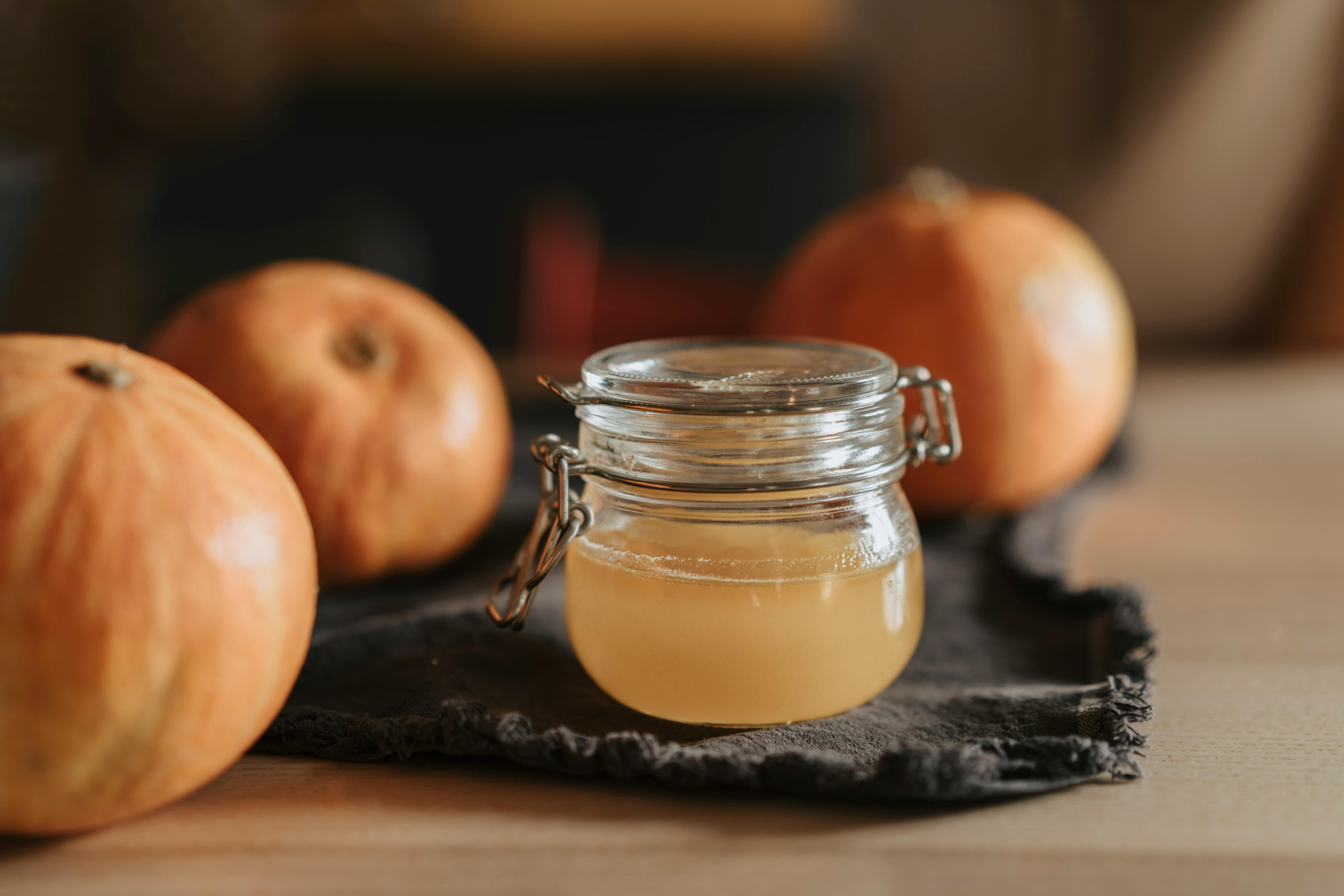Distilled vinegar is a popular household cleaning product that has been used for centuries to kill germs and bacteria. It can be used to clean surfaces, clothing, and even food preparation areas. Vinegar is a natural disinfectant that kills many common germs and bacteria on contact without harsh chemicals or odors. In this article, we will discuss how distilled vinegar kills germs and its effectiveness in eliminating bacteria from surfaces. We will also look at the best ways to use distilled vinegar for cleaning and disinfecting.Yes, distilled vinegar does kill some types of germs. It is most effective against bacteria and some viruses, including salmonella, Escherichia coli (E. coli), and Staphylococcus aureus (staph). However, it is not as effective as bleach or disinfectants with antimicrobial properties.
How Vinegar Kills Bacteria
Vinegar has been used for centuries as a household cleaner and for preserving food. It has strong antibacterial and antimicrobial properties, making it a great tool to fight off germs and bacteria. Vinegar is made from the fermentation of ethanol, which produces acetic acid. This acetic acid is what gives vinegar its antibacterial properties. Vinegar works to kill bacteria by disrupting the cell walls of the bacteria. The acetic acid in the vinegar reacts with the proteins and fats in the cell wall, breaking it down and killing the bacteria.
In addition to killing bacteria, vinegar also helps reduce other contaminants in food or on surfaces. It can help reduce mold growth, making it a great cleaner for bathrooms and kitchens. Vinegar also helps reduce food spoilage caused by microbes, so it’s often used as a preservative in pickles and other foods.
Vinegar is an effective killer of many types of bacteria, including E. coli, Salmonella, Staphylococcus, and Streptococcus species. It’s been shown to be effective against many
Different Types of Vinegar and Their Effectiveness
Vinegar is a versatile ingredient used in many recipes and household cleaning products. It is made by fermenting any type of food that contains natural sugars, such as apples, grapes, or rice. Depending on the type of vinegar you choose, it can be used for a variety of tasks and provide different levels of effectiveness.
The most common variety is white vinegar, which is usually made from grain-based alcohol. White vinegar has a very high acidity level, making it an effective cleaner for surfaces and fabrics. It can also be used to make pickles and dressings, as well as to preserve foods.
Apple cider vinegar is often used to treat medical conditions such as indigestion, acid reflux and other digestive issues. It can also be used in cooking to add flavor to dishes and to make marinades or pickles. Apple cider vinegar has antibacterial properties that make it effective for cleaning kitchens and bathrooms.
Red wine vinegar is made from fermented red wine or grape juice with added acetic acid bacteria.
What Is Cloud Computing?
Cloud computing is a type of computing service that provides users with access to a network of remote servers hosted on the internet. It allows users to store, manage, and process data in the cloud instead of their local devices. Cloud computing can be used for a variety of tasks such as file storage, web hosting, software development, and data processing. Cloud computing is cost-effective and offers increased flexibility and scalability compared to traditional computing solutions.
What Are the Benefits of Cloud Computing?
The primary benefit of cloud computing is its cost-effectiveness. By utilizing remote servers hosted on the internet, businesses can save money on hardware costs and maintenance fees associated with traditional computing solutions. Additionally, cloud computing enables businesses to quickly scale their services up or down as needed without having to purchase additional hardware or software. This scalability allows businesses to respond quickly to changing market conditions without having to invest in new infrastructure or personnel. Cloud computing also offers increased security by providing businesses with access to advanced security measures such as encryption and authentication.
Are There Any Potential RIs Distilled Vinegar Effective Against Viruses?
Distilled vinegar has long been touted as an effective remedy for a variety of ailments, such as warts, colds, and the flu. But is it really effective against viruses? The answer is yes, to a certain extent. Distilled vinegar has been found to be effective in killing certain types of bacteria and fungi. Unfortunately, it is not as effective against viruses.
Viruses are much more difficult to kill than bacteria or fungi due to their unique structure. They are able to replicate themselves inside cells and can quickly spread throughout the body. Therefore, they require more specialized treatments in order to be effectively eradicated.
The good news is that distilled vinegar does have some antiviral properties that can help fight off colds and the flu. Studies have shown that it can help reduce the severity of symptoms and even shorten the duration of illness when taken regularly during a cold or flu bout.
In addition, distilled vinegar can help boost immunity by increasing the number of white blood cells in the body which helps defend against viral infections. It also helps balance pH levels in the body which further helps protect against

Benefits of Using Distilled Vinegar as a Disinfectant
Distilled vinegar is an effective and natural disinfectant that can be used to clean and sanitize a variety of surfaces. It has many benefits over the use of chemical-based cleaners, including being economical, safe for the environment, and easy to acquire. It is also a powerful antibacterial agent that can help keep your home free from harmful bacteria, viruses, mold, and fungi.
Using distilled vinegar as a disinfectant is much more cost-effective than using traditional chemical cleaners. It can be purchased in larger quantities at bulk stores or even grocery stores for much cheaper than most commercial cleaning products. As an added bonus, it does not contain any harsh chemicals or toxins which makes it safer for the environment.
Another benefit of using distilled vinegar as a disinfectant is that it is incredibly versatile. It can be used on almost any surface in your home including countertops, floors, walls, and even toilets. It can also be used to clean up spills or remove stains from fabrics such as clothing or bedding. Additionally,
Does the Strength of the Solution Matter?
When it comes to cleaning and disinfecting, the strength of the solution is an important factor. A solution that is too weak may not be effective in removing dirt or killing germs, while a solution that is too strong may be hazardous to use. The strength of the solution used for cleaning and disinfection should be appropriate for the task at hand.
The concentration of a cleaning or disinfecting solution should be determined by the product’s label instructions. Different types of products have different concentrations, and using a concentration that is too strong or too weak can cause problems. For example, bleach solutions should never be used at concentrations higher than 1:10, as this can cause damage to surfaces and skin irritation.
The amount of time a solution is left on surfaces also affects its effectiveness. The contact time required depends on the type of product being used, as some require a longer contact time than others in order to work properly. It’s important to follow label instructions when using any product for cleaning or disinfecting purposes in order to ensure optimal results.
Finally, proper dilution of cleaning and disinfecting products is essential for safety
How to Use Distilled Vinegar to Kill Germs
Distilled vinegar is a natural disinfectant that can help kill bacteria and germs in your home. It is also very cost effective and easy to find. While it is not as powerful as bleach or other industrial cleaners, it is still an effective way to clean surfaces and kill germs. Here are some tips on how to use distilled vinegar to kill germs:
1. Make a cleaning solution by mixing equal parts of distilled vinegar and warm water in a spray bottle. Shake the bottle gently before use. The solution should be used within a few days for best results.
2. Spray the solution on any hard surface you want to clean, such as countertops, tiles, appliances, etc. Let the solution sit for several minutes so that it can work its way into cracks and crevices where bacteria may be hiding.
3. Wipe down the surface with a damp cloth or rag. Be sure to rinse off any excess vinegar residue before drying with a soft cloth or paper towel.
4. For

Conclusion
Distilled vinegar has been proven to be an effective disinfectant against certain types of bacteria, viruses, and fungi. It is an affordable, natural alternative to harsh chemical cleaners and can be used safely in many household and industrial settings. Vinegar can be used to help prevent the spread of common illnesses like the cold and flu, as well as foodborne illnesses. It is important to remember that vinegar should not be used as a substitute for regular hand-washing or other cleaning protocols.
In conclusion, distilled vinegar can play an important role in helping to kill germs and keep us healthy. Its natural properties make it a safe and cost-effective solution for many different scenarios. However, it is important to remember that distilled vinegar should be used alongside other recommended cleaning protocols for maximum effectiveness.

